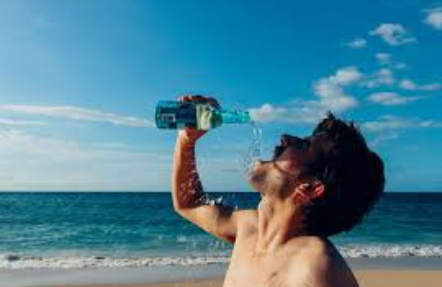The Top Electrolyte Powders and Blends

Anyone who works out and perspires heavily should drink plenty of water to be hydrated, but they should also take electrolyte supplements. Following a hiatus of a few years, I resumed distance running in the last several years. When I first started running regularly, I would take pride in my ability to go on lengthy runs without electrolyte supplements. I would simply drink water before and after my runs, as if that would give me the strength to complete them. But after a few miles, I began to feel awful on my runs; I had headaches and lost interest. I didn’t understand I was dehydrating from running (or any intense exercise) until I spoke with some nutritionists for this piece. Sodium is the most common electrolyte lost through perspiration, while potassium, calcium, and magnesium are the four main types, according to an dietitian. An imbalance of these or any of the other electrolytes, which are crucial to healthy bodily function, can lead to unpleasant symptoms and, in extreme cases, even death.
Sports Research Hydrate Electrolytes Powder Packets
But not everyone has to spend their days ripping open electrolyte powder packages. The main source of electrolytes is a varied and balanced diet, so it’s important to eat a variety of foods. On days when we perspire more heavily, we might benefit from some additional support. An electrolyte drink could be beneficial for runners who spend less than an hour outdoors in hot and humid conditions.
Look for electrolyte pills that contain carbohydrates if you’re engaging in long, intensive workouts. Bonking occurs “when you use up all of your carbohydrate stores in your muscles,” a phrase that sportsmen frequently employ. We will encounter a wall after we deplete those supplies. Physical therapist Suzan Myers advises her patients to consume carbohydrates “in general if your workout is longer than an hour and fifteen minutes — depending on duration and intensity — you need to take carbs in,” after a strenuous workout. (In general, endurance athletes should aim for 60 to 100 grams of carbohydrates each hour while exercising, though this varies from person to person, according to Myers.) Pay attention to the nutrition facts on sports drinks; if your exercise routine isn’t particularly strenuous, you might not require or even desire the additional sugars and carbs that are in many of them.
We have extra electrolytes on hand in case you ever need them. I talked to five professionals, including nutritionists, trainers, and dietitians, about the many powders, pills, and mixes that they use and suggest for physical activity and regular hydration. Also included in this list are the electrolyte powders that have passed our testing and evaluation processes, which I located by searching our records.




